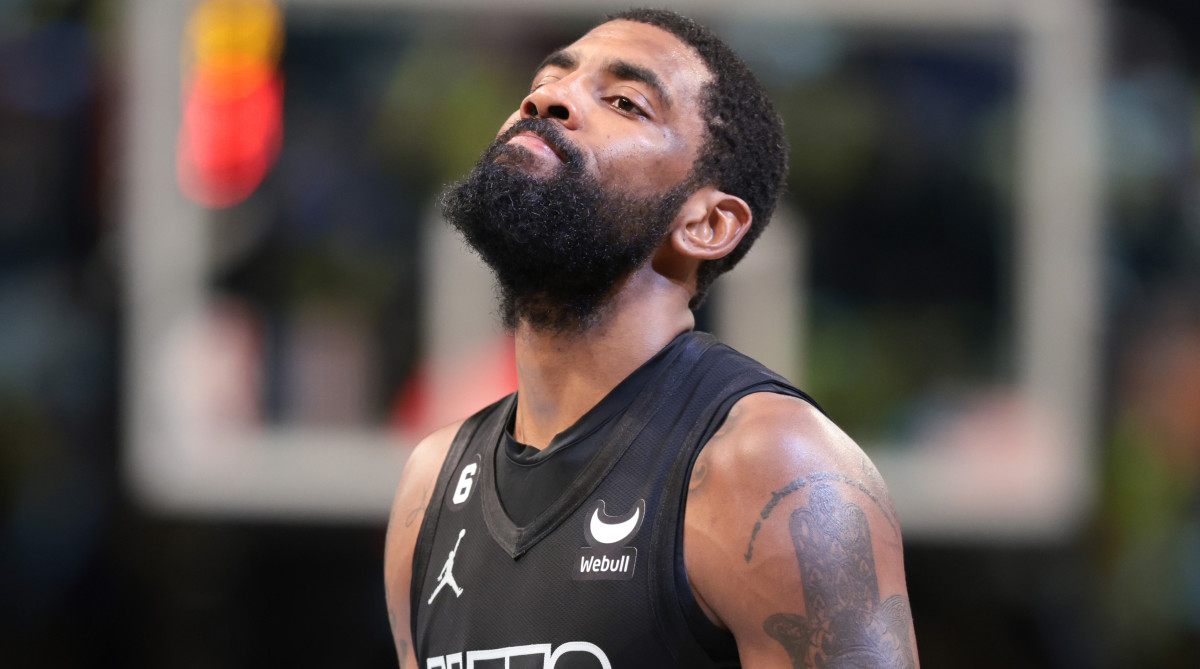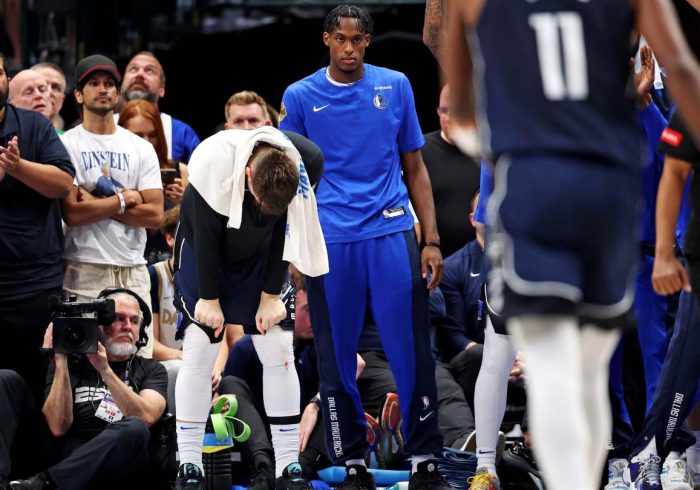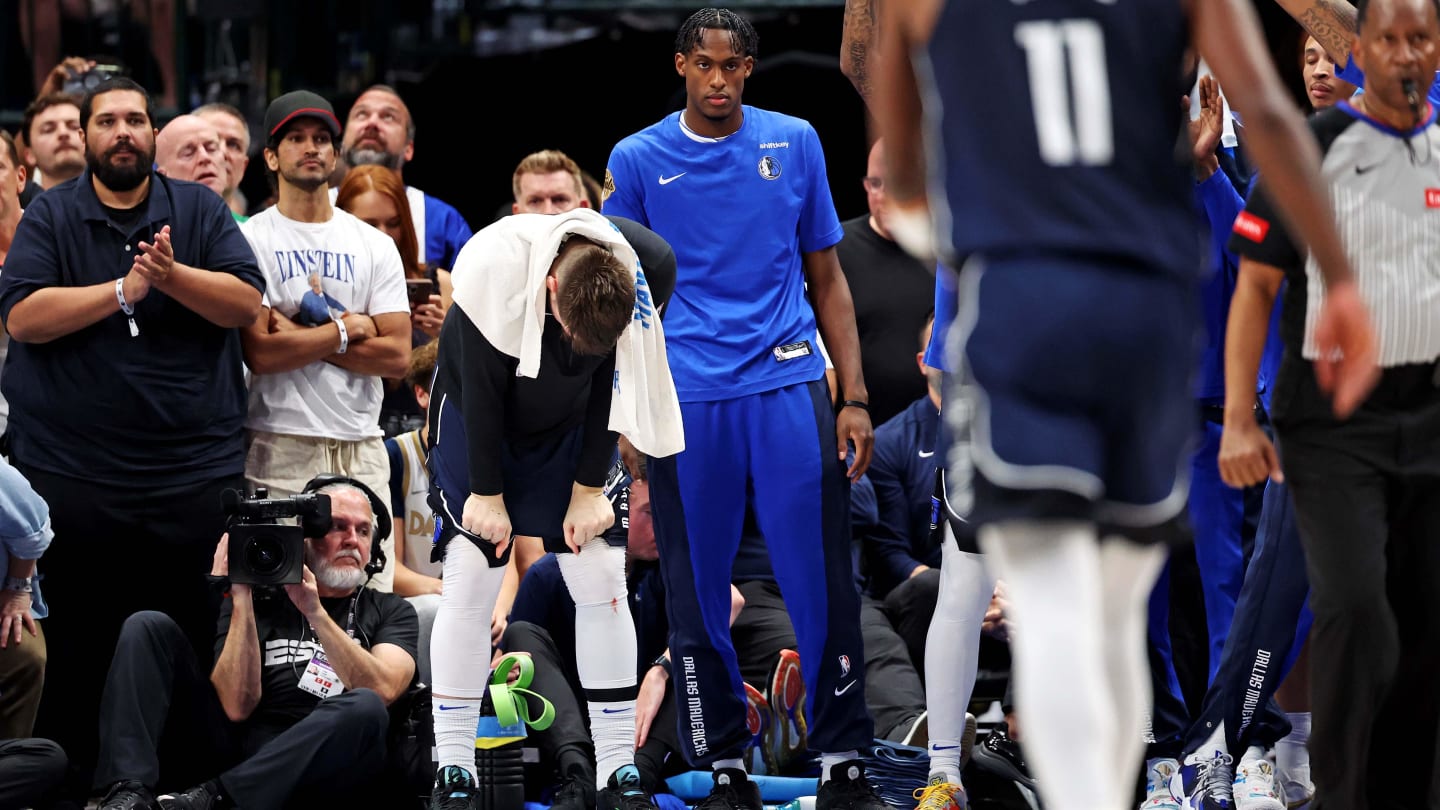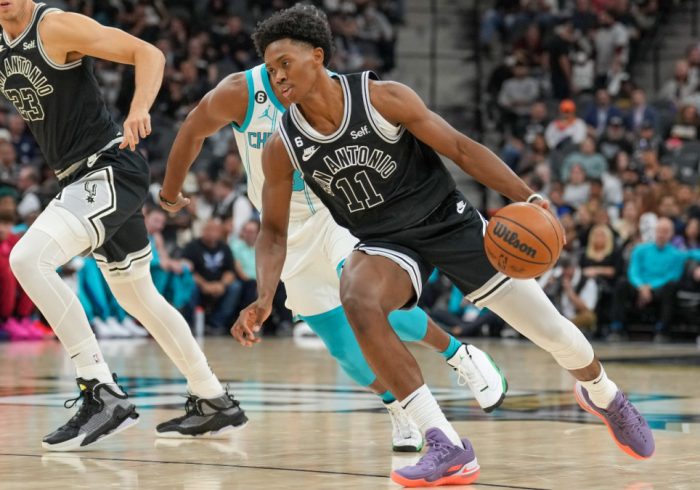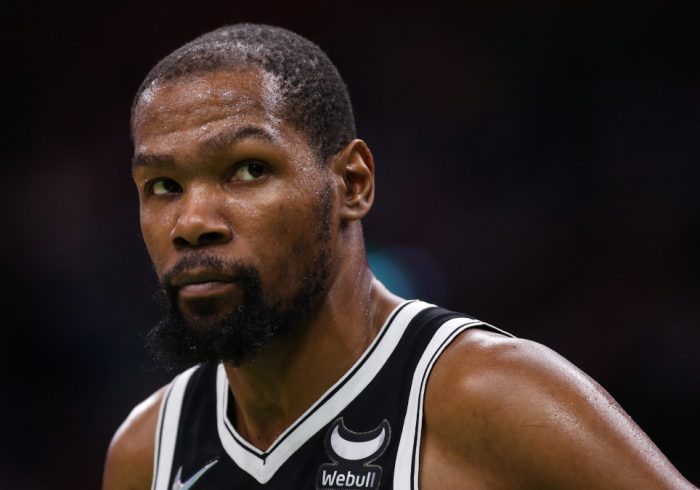Enough already. It is time to suspend Kyrie Irving. No more dancing around the issue, no more chances for Irving to stand near a microphone and do his shifty pseudo-intellectual/martyr act. He cannot be trusted to say, do or even think the right thing, and so Adam Silver or the Nets have to do it for him.
Irving blew his last chance at a genuine apology Thursday with another debacle of a press conference. He had ample opportunity to denounce what should so obviously be denounced, and he still did not do it. He has proven himself uninterested in self-reflection and incapable of a sincere apology because he is so committed to presenting himself as the deep thinker that he clearly is not.
A week after promoting an antisemitic, lie-filled film, Irving is still determined not to get it. Instead of saying he was wrong, he said, “I didn’t mean to cause any harm. I’m not the one that made the documentary.” Asked whether he was antisemitic, he said, “I cannot be antisemitic if I know where I come from.”
Asked whether he was surprised he hurt people, Irving—who has Native American ancestry—said, “Where were you when I was a kid finding out that 300 million of my ancestors were buried in America?”
Hey, Kyrie, since you asked: When I was a kid, I learned a lot about the Holocaust, which the film you promoted claims did not happen. I did not learn nearly enough about how this country treated your ancestors. But when I did learn about it, I understood it was an important piece of history that everybody should learn. Why can’t you do the same about the Holocaust?
Irving has problems that Silver can’t fix. But Silver can and must suspend him.
If you are one of the people who is angry that Silver did not suspend Irving already, that is understandable. But it’s important to understand how scandals are handled in pro sports, and especially the NBA.
When a crisis hits a franchise, the league office is in regular contact with that team. Silver prides himself on communication; of course he had to be talking to the Nets this whole time. Silver also has a long history of trying to cajole people into doing what he thinks they should do. Where NFL commissioner Roger Goodell has been too eager to impose his authority, Silver favors a more conciliatory approach: We need to get there, but let’s get there together.
Almost a decade ago, when then Hawks general manager Danny Ferry was caught reading a scouting report about how South Sudan–born Luol Deng had “some African in him,” Silver condemned Ferry’s comments but said Ferry should get to keep his job. His hope then was his hope with Irving: an apology from the offender, sensible discipline from the team, a learning experience for everybody.
And so, when Irving and the Nets announced they would each donate $500,000 “toward causes and organizations that work to eradicate hate and intolerance in our communities,” and that they would work with the Anti-Defamation League … well, you can safely assume Silver did not find out on social media like the rest of us did. That was supposed to be a pathway for Irving to move on.
But Irving doesn’t want to move on. He made that clear in the statement the Nets released, in which he did not say he was sorry or condemn antisemitism specifically. That pathetic half-apology led to Silver responding with a statement Thursday morning, calling Irving’s decision to promote the film “reckless” and saying, “I am disappointed that he has not offered an unqualified apology and more specifically denounced the vile and harmful content contained in the film he chose to publicize.”
Silver might as well have DM’d that to Irving. The commissioner was ticked, but he was still trying to help Irving extricate himself from this mess. Irving just had to do what Silver asked. He didn’t even have to come up with the words himself. They were right there in Silver’s statement—which was released publicly before Irving spoke Thursday. Irving had ample time to review it.
Irving just had to say: Today I offer an unqualified apology. I denounce the vile and harmful content contained in the film I chose to publicize.
Instead, Irving ducked questions about whether he is antisemitic and acted like he was being persecuted. This isn’t just a dishonest academic argument. There are real consequences when celebrities like Irving normalize hatred. Hate crimes against Jews are way up. Saying “I’m not the one who made the documentary” is a dodge, and an offensive one. If you promote a KKK rally, you can’t say, “Hey, I’m not the one holding the rally.” Irving might fancy himself some sort of philosopher, but his words have real and potentially dangerous consequences.
There are also immediate consequences for the league, in corporate dollars and reputation, both of which matter to Silver. Irving comes off as a right-wing parody of an activist NBA player. He is threatening to undo so much of the good social-justice work that the NBA has done in the past three years.
So now Silver has no choice. Think back to this summer, when Goodell suspended Browns quarterback Deshaun Watson for a season and Watson appealed. Goodell agreed to reduce the suspension to 11 games in exchange for Watson dropping his appeal and Watson apologizing for his actions that led to more than 20 women accusing him of sexual misconduct or sexual assault. In his official statement, Watson said, “I take accountability for the decisions I made.” But then Watson held a press conference and made it clear he didn’t think he was wrong at all. Goodell, who had already agreed to reduce the suspension, had no real recourse.
Silver can’t afford that. I am doubtful that Irving would even fully apologize to the commissioner’s face, under threat of suspension; for years he has chosen what he imagines is his mystique over his career. But even if Irving did release a statement saying exactly what Silver wanted, who could trust him to stick to it?
Silver has to suspend Irving, for the sake of his league. Irving has done this to himself. Enough.
More NBA Coverage:
